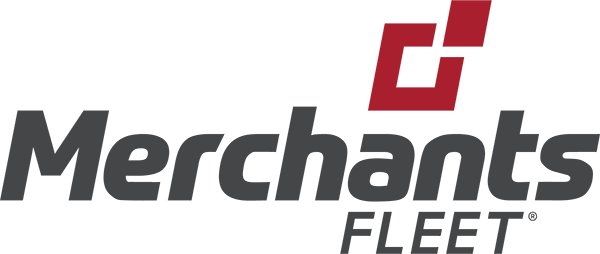What is Fleet Management?
What Is Fleet Management?
Download the “What is Fleet Management” White Paper
From your neighborhood oil and gas provider to cross-country delivery services, businesses across all industries rely on commercial vehicles to transport people and products every day. These commercial vehicles are known as a fleet, and they are often one of a business’ most expensive assets.
Therein lies the need for fleet management — systems, processes, and tools that work together to control the entire lifecycle of business vehicles. According to TechTarget, “Fleet management is an administrative approach that allows companies to organize and coordinate work vehicles with the aim to improve efficiency, reduce costs, and provide compliance with government regulations.”
Fleet management requires:
- People: A Fleet Manager or a Fleet Management Company
- Technology: Fleet Management Software, Vehicle Dash Cameras, Vehicle Sensors, Telematics, and GPS
- Data: Information Gathered by the Fleet Management Technology, Such as Engine Diagnostics and Driver Behavior
What is Fleet Management Software?
Fleet management software is an essential central database that helps fleet managers control, organize, and coordinate vehicles. It also allows managers a full view into their fleet and its operations.
The software can be integrated with third-party tools, such as maintenance providers, fuel cards, accounting, and beyond. When connected to sensors, GPS trackers, and telematics devices, the software keeps track of information related to vehicle diagnostics, driver behaviors, maintenance needs, fuel spend, and more. Many modern vehicles have these sensors and GPS hardware built in and can communicate through connected vehicle software without additional hardware. Below is a look at some of the capabilities of fleet management software:
- Accounting: Monitoring and Verifying Expenses to Identify Fraud and Manage Budgets
- Fuel Spend: Vehicle Sensors Can Detect Excessive Idling to Reduce Excessive Fuel Spend
- Maintenance: The Software Can Keep Track of Maintenance History and Send Reminders for Service
- Real-Time Alerts: Drivers Can Be Notified of Unsafe Driving Behaviors Through In-Cab Alerts
- Hours Tracking: Drivers Can Stay Compliant with Hours of Service with Built-In Electronic Logging Devices (ELDs)
- Security: Managers Can Detect Where Vehicles Are and if They Were Driven After Hours
6 Benefits of Fleet Management
With the proper fleet management processes in place — including a fleet manager and fleet management software — businesses benefit from:
1. Clear Operational Visibility
Fleet management software provides a stout layer of historical and real-time information. Armed with this data, fleet managers can gain clear insights into operations and make updates as necessary. For example, did a driver use a company vehicle off-hours to visit a certain restaurant? The GPS sensors on the vehicle will carry all of that information back to your fleet management software.
2. Safer, More Reliable Vehicles
Fleet management helps businesses stay on top of regular maintenance, which reduces the risk of breakdowns or accidents. Businesses that lease vehicles can take advantage of newer models that have advanced safety features to keep drivers protected on the road.
Safer vehicles lead to safer drivers, as long as there is someone to actively monitor behavior. Fleet managers can use engine diagnostics and vehicle trackers to check if drivers are braking, accelerating, or turning corners too aggressively. When Tuff Shed, Inc. incorporated telematics into their fleet management processes, they experienced a 300% reduction in speeding instances.
4. Higher Driver Satisfaction
Structured fleet management processes can improve your drivers’ day-to-day experience. Fleet management automates many manual tasks, such as logging hours, eliminating menial labor and saving drivers valuable time.
5. Optimized Productivity
Delays, idling, and downtime negatively impact driver productivity and can increase operational costs. Fleet managers in the office can be proactive by tracking idle time, driver behavior, and driving patterns. This can also help reduce vehicle emissions and save on fuel costs — which, on average, account for 60% of a company’s total fleet operating budget.
6. Better Cost Management
Drivers, vehicles, and fuel are expensive. They can be even more expensive when not monitored and reported on like other business finances. The purpose of fleet management is to streamline fleet operations, which ultimately helps businesses improve their cost management.
What Does a Fleet Manager Do?
In a nutshell, businesses enlist fleet managers to oversee the lifecycle of company vehicles. Indeed explains that fleet managers “work alongside other department managers to ensure deliveries and distributions are made on time and the required vehicles are available and operating as required. Additionally, a fleet manager oversees the scheduling of deliveries and ensures the department operates within the established budget.”
An in-house fleet manager often wears many hats — fleet management responsibilities could fall to procurement, operations, finance, or other professionals. You can see by the list of responsibilities below that fleet management is often more than a full-time job:
Driver Safety
Monitor driver behavior on the road to reduce risk and optimize safety procedures.
Driver Retention
Recruit new drivers and manage existing drivers through company retention strategies.
Fleet Tracking & Analytics
Use fleet management software or manual tools to monitor and analyze important metrics for optimal performance.
Cost Reduction
Evaluate ways to reduce non-preventative maintenance needs, reduce fuel spend, and control operational costs.
Fuel Program Management
Track and report purchases, define preferred locations and policies, and monitor each driver’s fuel usage.
Fleet Services & Maintenance
Ensure all vehicles are fully operational, coordinate routine maintenance, and organize repair services.
Compliance
Manage hours of service (HOS) for truck drivers, licensing, inspections, titles, and tax reporting.
Acquisition
Proactively assessing new vehicle needs.
Leasing & Financing
Find the best financing options on the right vehicles for the business.
Fleet Remarketing
Sell or dispose of unnecessary assets or older vehicles that are due for replacement.
Challenges Faced by Fleet Managers
Measurable metrics are an integral part of managing a fleet. However, the management of vehicle data and its translation into meaningful insights can be difficult for someone who is balancing various other job responsibilities. Disparate data sources only make this more challenging, and the more sources there are the more complicated processing becomes.
Once the data is understood and there is a general idea of what improvements need to be made, fleet managers — because they are wearing multiple hats — need to receive approval from multiple departments. This can be time-consuming and makes it difficult to balance immediate needs (driver safety, fuel spend) with plans for the future (vehicle acquisitions, technology updates).
How Fleet Management Is Evolving
The Internet of Things (IoT) has created more connected, safer vehicles through the use of engine sensors, automation, and new tools designed to streamline operations.
With this new technology comes a new world of benefits, such as cost savings, improved safety, and better compliance. However, as fleets bring on more vehicles and regulations continue to change, the abundance of data becomes greater and requires more administrative attention from fleet managers.
Fleet managers with cross-departmental responsibilities are not always able to be closely involved in these operations. Analyzing data and identifying opportunities for better efficiency require certain skills that can be hard to demand from someone who wears several hats, which is why many businesses choose to partner with a fleet management company.
How to Find a Fleet Management Company
In-house fleet managers certainly have a great deal of responsibilities, but you also have the option of enlisting the help of a fleet management company.
The key is to select the best fleet management company for your needs. With the right partner, your business can benefit from:
- Reduced Administrative Burden
- Access to Specialized Expertise
- Connections to Vendor Partnerships and Volume Discounts
- Direct Connections to OEMs for the Latest and Greatest Production Information
- Streamlined Fleet Services, All Under One Provider
-
Here are a few crucial questions to ask of any fleet management provider you are considering working with:
What is Their Client Service Like?
You want to work with a company that you know will pick up the phone if you have an issue. You should never be confined to an 800 number. If the fleet management company values client service, they will provide a direct phone number to your designated account manager.
What Fleet Services Do They Offer?
Every fleet is different. Your business needs may be completely different from your competitors, and not every fleet management company will offer the same services.
Do They Offer Contract Flexibility?
Not all fleet management providers offer flexible financing options. Verify up front that any fleet management company you are considering offers vehicle leasing structures that work for your business.
Do They Have a Transition Plan?
Changing fleet providers or going from an in-house manager to a vendor is an involved process. It’s important that your fleet management partner set clear expectations so you know what the changeover process looks like and how it will be managed.
Check online reviews on Google and other relevant online sources or ask for client references. You can also ask your network for recommendations. The company may have case studies and reviews on their website, but these will only highlight the clients who have had positive experiences.
Case Study: The Transition to a Fleet Management Company
Before partnering with a fleet management company, a business with a 240-unit fleet was spending an excessive amount of money on engine and electrical work.
Once the company began working with Merchants Fleet, we implemented controls to ensure that all service was absolutely necessary, and placed all repair costs under strict monitoring. We also enacted preventative maintenance measures on a recurring basis to proactively address vehicle issues.
Program implementation took three months, and the client saw positive results almost immediately. By the end of the first year:
- Maintenance spend decreased by 31%
- Utilization of maintenance services increased by 10%
 Not Sure Where to Start? Contact Merchants Fleet
Not Sure Where to Start? Contact Merchants Fleet
For more than 60 years, Merchants Fleet has been the leader in flexible fleet management solutions for businesses across nearly every industry. We are more than just a fleet management provider — we act as partners to our clients by providing best-in-class fleet solutions and unmatched client service.
For more information about how we can help you propel your fleet management processes, contact us.
Frequently Asked Questions
What are the benefits of partnering with a fleet management company?
What are the benefits of fleet telematics?
How does Merchants support its partners from a consulting perspective?
How does Merchants Fleet support its partners from a technology perspective?
The Fleet Management Buyers Guide
You need a partner, not a vendor. We’ve put together a list
of important questions to ask.





